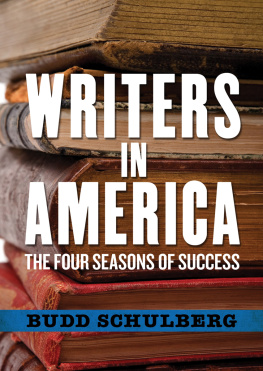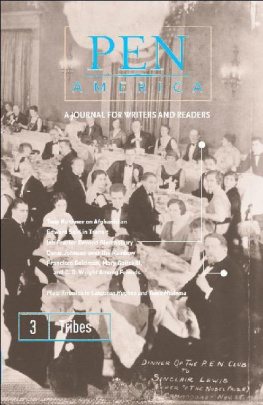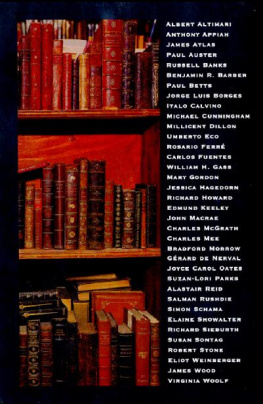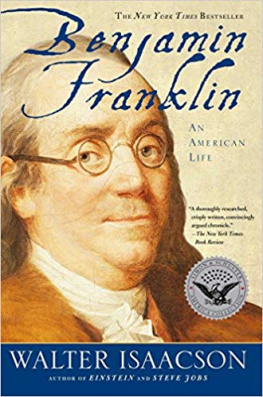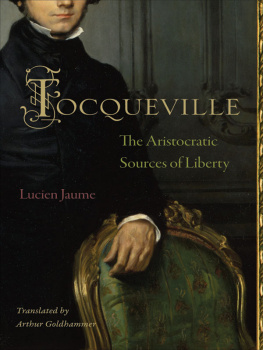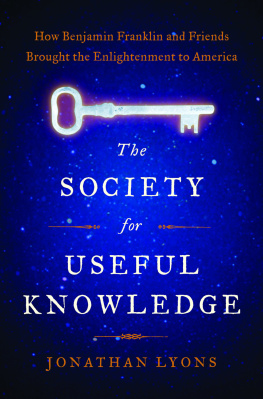Posthumous America
Posthumous America
Literary Reinventions of America at the End of the Eighteenth Century
Benjamin Hoffmann
Translated by Alan J. Singerman
The Pennsylvania State University Press
University Park, Pennsylvania
Library of Congress Cataloging-in-Publication Data
Names: Hoffmann, Benjamin, 1985 , author. | Singerman, Alan J., translator.
Title: Posthumous America : literary reinventions of America at the end of the eighteenth century / Benjamin Hoffmann ; translated by Alan J. Singerman.
Other titles: Amrique posthume. English.
Description: University Park, Pennsylvania : The Pennsylvania State University Press, [2018] | Includes bibliographical references and index.
Summary: An English translation of Benjamin Hoffmanns French monograph LAmrique Posthume. Examines the literary idealization of a lost American past in eighteenth-century French literatureProvided by publisher.
Identifiers: LCCN 2017060786 | ISBN 9780271080079 (cloth : alk. paper)
Subjects: LCSH: United StatesDescription and travelEarly works to 1800. | Travelers writings, FrenchHistory and criticism. | St. John de Crvecoeur, J. Hector, 17351813Criticism and interpretation. | Lezay-Marnzia, Claude-Franois-Adrien, marquis de, 17351800Criticism and interpretation. | Chateaubriand, Franois-Ren, vicomte de, 17681848Criticism and interpretation.
Classification: LCC E164.H71513 2018 | DDC 917.304/33dc23
LC record available at https://lccn.loc.gov/2017060786
Copyright 2018
Benjamin Hoffmann
All rights reserved
Printed in the United States of America
Published by
The Pennsylvania State University Press,
University Park, PA 16802-1003
The Pennsylvania State University Press
is a member of the
Association of University Presses.
It is the policy of The Pennsylvania State University Press to
use acid-free paper. Publications on uncoated stock satisfy
the minimum requirements of American National Standard
for Information SciencesPermanence of Paper for
Printed Library Material, ansi z39.481992.
CONTENTS
This book is dedicated to my professional role models, Thomas M. Kavanagh and Christopher L. Miller, with my most heartfelt gratitude. I would like to thank the Beinecke Library at Yale University and the Whiting Foundation for the research grants they awarded me. I also wish to express my gratitude to Guillaume Ansart, Howard Bloch, Michel Delon, Pierre Frantz, Laurence Mall, and Maurice Samuels for the depth of their comments on my work. I likewise owe warm thanks to my editor, Kendra Boileau, for her generous and constant support, as well as to Alex Vose, who deftly guided the preparation of the manuscript. I extend most sincere thanks to the author of the present translation, Alan J. Singerman. Once again, it was a pleasure and a privilege to work with you. The idea of this book was born on a train between New Haven and New York City, during a conversation with my wife, Audrey. Thank you for your ideas, your support, and your love, from the outset of this project and at each and every step toward its completion.
Introduction
New World Paradoxes
... the United States is growing more quickly than this manuscript.
Chateaubriand, Mmoires doutre-tombe, 1:470
Ephemeral America
At the turn of the eighteenth century, America resembled Heraclituss river where no one ever swims twice. What are the causes of this constant mutation?
The boundaries of the body of literature examined in this work are set by the publication of United States.
This considerable territorial increase was accompanied by a remarkable rise in population. The thirty-six censuses completed by England between 1761 and 1775 allow us to trace the demographic evolution of the American colonies: on the eve of independence, they comprised 2,300,000 inhabitants.
The uninterrupted demographic and territorial growth of the United States was accompanied by protean changes: the forests were decimated and cities arose from the ground; despite violent resistance and brilliant victories, the Amerindians were ultimately driven from lands they had occupied forever; and innumerable Europeans followed in the footsteps of their predecessors who had fled religious persecution or misery in the course of the preceding two centuries. They came from France and Santo Domingo during the Revolutions, gathering north of Philadelphia when, like America thus presents an initial paradox: it slips away when you try to write about it. Devoting a book to it is like attempting to seize an object that perpetually eludes you.
An Elusive New World
At the turn of the eighteenth century, there is indeed an inevitable gap between a discourse on America and the current state of this land, such that no manuscript, to paraphrase Chateaubriand, could ever keep pace with the territorial and social mutations of the United States. They are like the train that recedes into the distance and can only be pictured at the place that it no longer inhabitsor like the star that may well already be dead when its light reaches us. In this respect, any literary representation of America at a particular time may be considered obsolete by definition, since it arises after the disappearance of its model: a text can at best only give a prematurely anachronistic image of a country that has already metamorphosed at the moment of its publication.
This gap between reality and representation, however, is not caused by the speed of demographic and territorial change alone, for in the case of traveling French writers, the spacio-temporal distance between the two countries greatly contributes to its increase. Ren idealization.
Given that it takes a very long time to receive news from America in France, the conceptions that people may have formed of that country have
Indeed, the distance between America and Europe allowed people to imagine El Doradolike opportunities awaiting emigrants from across the Atlantic. As
In the end, the rhythm of the modifications that occur in Washingtons land, the distance that separates the two shores of the Atlantic, and the length of time necessary to bridge it explain why the French representations of America at the turn of the eighteenth century regularly combine anachronism with inaccuracy. Nonetheless, the works that are the subject of this study stand out in the French literary production devoted to America in this period in that they do not produce an obsolete but rather a posthumous representation.
What Is Posthumous America?
A child is referred to as posthumous when it is born after the death of its father; likewise, a literary work is posthumous when it is published after the decease of its author. While an obsolete representation of America no longer gives an accurate image of the country, since it has transmogrified in the lapse of time between the experience of the itinerant writer and the publication of his work, a posthumous representation revives a historical epoch that has already vanished when the author who knew it takes up his pen.
It is still incumbent upon us to distinguish between a posthumous representation and a historical approach that would attempt to describe Americas past as rigorously as possible, since unlike the historian, who has not necessarily witnessed the period he is examining and whose legitimacy rests in part on the dispassionate relationship he cultivates with the object of his study, the author of a posthumous representation of America has traveled to the other side of the Atlantic during the period that he is recreating after the fact. Moreover, while the traveling writer does not commit to tell the truth about his experience, the deontology of the historian demands veracity.


